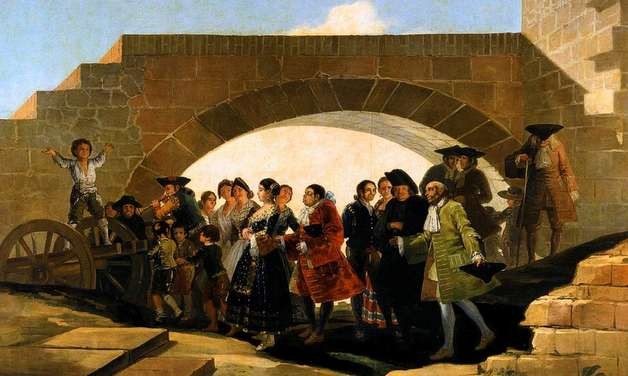It’s become common, in recent months, for politicians to justify a shift towards supporting the redefinition of marriage by saying that their position on marriage has “evolved.” The problem, though, is that marriage hasn’t evolved—rather, our understanding has devolved.
Despite the manifold changes in society over the millennia—and, in the West, our more recent shift in public opinion on the matter—it still takes a man and a woman to make a child, and the well-being of children still depends on the faithfulness of their union.
The treatment of marriage found in the Catechism of the Catholic Church begins with this sentence, taken from the Code of Canon Law:
The matrimonial covenant, by which a man and a woman establish between themselves a partnership of the whole of life, is by its nature ordered toward the good of the spouses and the procreation and education of offspring; this covenant between baptized persons has been raised by Christ the Lord to the dignity of a sacrament. (1601)
Notice that everything in the quotation above that comes before the semi-colon is about marriage not as a sacrament or a religious institution, but as a natural institution. “By its nature,” marriage is (1) a covenant; it is (2) between “a man and a woman;” it is (3) “a partnership for the whole of life;” and it is (4) ordered toward two ends: “the good of the spouses and the procreation and education of offspring.”
All of that, according to the Church, is true of marriage even without the Christian religion. The sacramental nature of marriage between baptized persons is very important, but marriage as a natural institution is already a robust foundation. Even in a religiously pluralistic society, this natural foundation should ground our public understanding of marriage.
Lest we think, though, that the Church is trying to force her view of marriage on modern governments by making such strong claims about marriage as a natural institution, we turn to the pre-Christian and pagan philosopher Aristotle, who says this:
Between man and wife friendship seems to exist by nature; for man is naturally inclined to form couples—even more than to form cities, inasmuch as the household is earlier and more necessary than the city, and reproduction is more common to man with the animals. With the other animals the union extends only to this point, but human beings live together not only for the sake of reproduction but also for the various purposes of life . . . And children seem to be a bond of union (which is the reason why childless people part more easily); for children are a good common to both and what is common holds them together. (De Anima 8, 12)
According to Aristotle, then, marriage is, “by nature,” (1) a relation of “friendship;” it is (2) “between man and wife;” it is (3) held together by children, presumably for the whole of life; and it is (4) ordered toward two ends: “reproduction” and “the various purposes of life.” We see striking similarities between Aristotle and the Catechism on both the structure and the ends of marriage as a natural institution.
Further, we see in Aristotle that “the household is earlier and more necessary than the city.” In modern terms, we would say that the family is building block of society. If the family is earlier and more necessary than the state, and if marriage, as the friendship of man and wife, is the foundation of the family, then it would follow that the state ought to respect marriage, not as a government-sanctioned contract we may redefine at will, but as the most fundamental institution of human nature.
Our post-sexual revolution society has been undermining the two main ends of marriage for years. The first, procreation and the education of offspring, has suffered from the proliferation of contraception and non-conjugal sexual activity. The second, lifelong fidelity for the good of the spouses, seems hopelessly out-of-date given no-fault divorce and widespread cohabitation. Is it any wonder that we no longer recognize marriage for what it truly is?
As devastating as the consequences of our societal forgetfulness of the real nature of marriage may be, we can depend on this: as long as it still takes a man and a woman to produce a child, and as long as the education of children and the good of the spouses depend on a faithful relationship, the true nature of marriage won’t be evolving any time soon.
✠
Image: Francisco Goya, The Wedding







